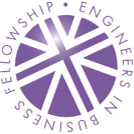BUSI60041 Entrepreneurship Module – 2023
Back to Competitions | Imperial College Business School’s Entrepreneurship module (BUSI60041) allows students to design a business based on gaps they saw in the market and issues relevant to their communities. Students were required to develop a pitch deck and videotape showing how they pitched the business, as well as test critical hypotheses of their business through a set of experiences that they detailed in a final playbook. |
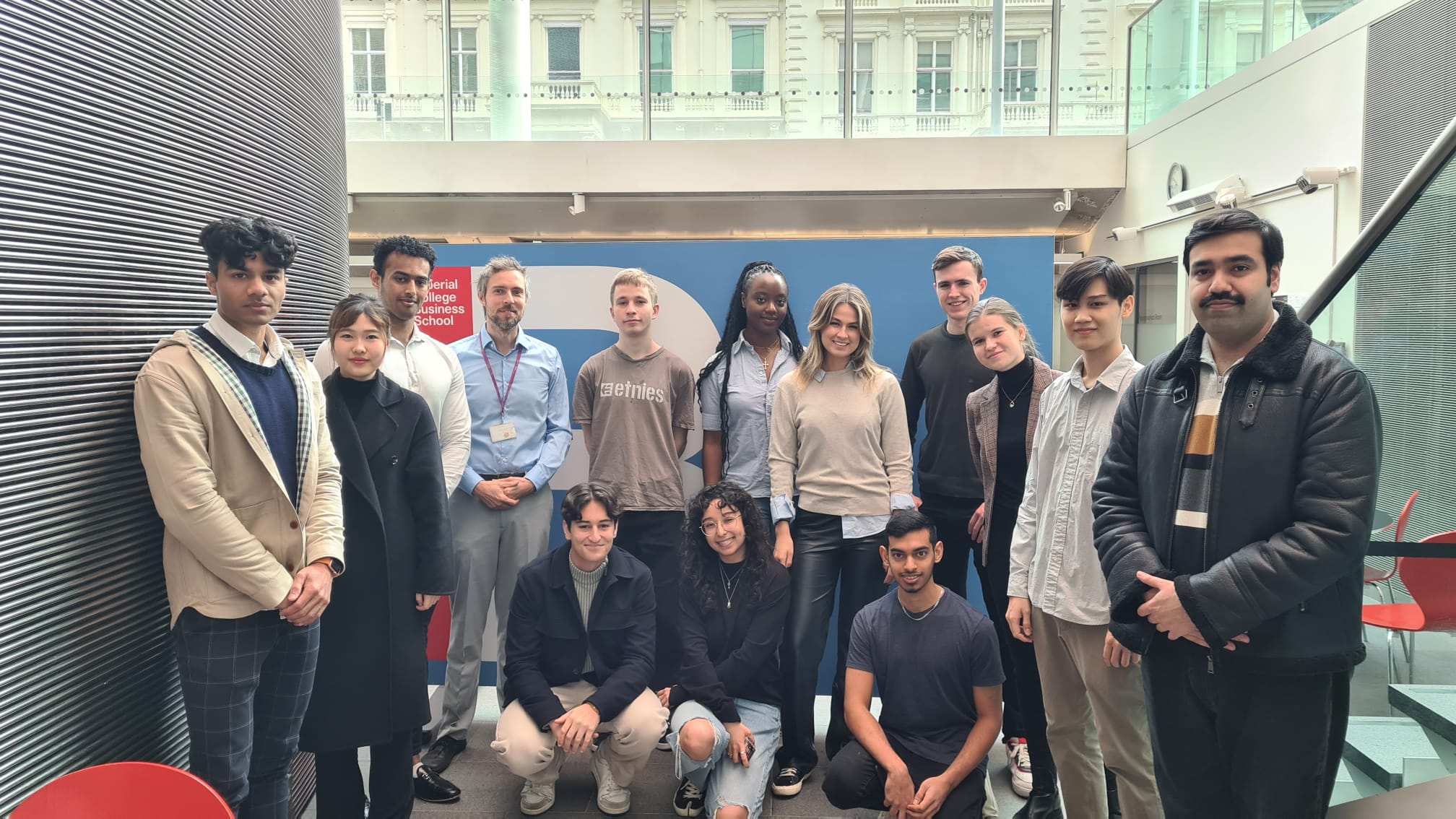
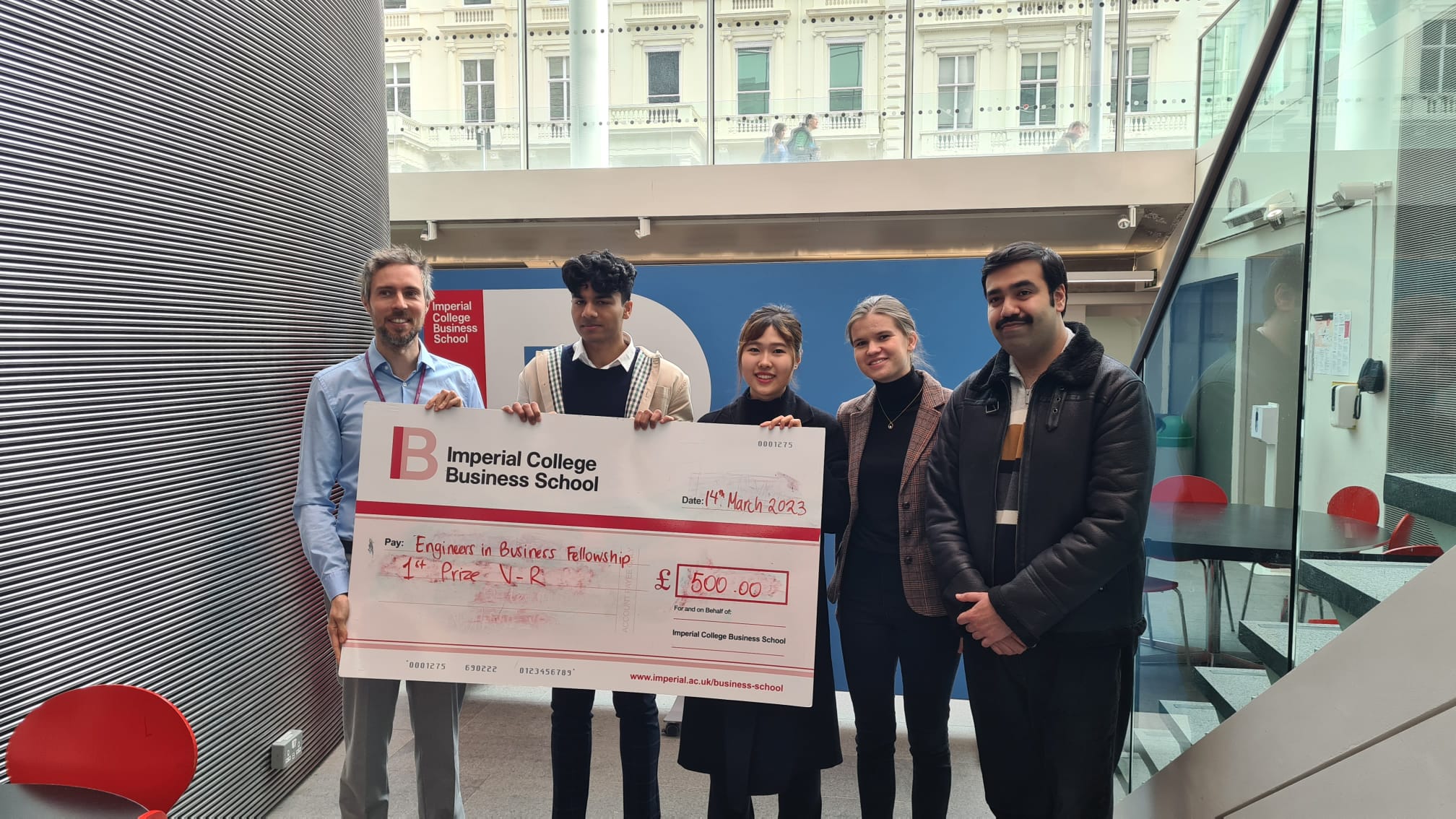
First Prize Winner: VR Team
Left to right are Tim Wiess, Module Leader with the VR Team members Tarun Bhaskaran, Mechanical Engineering; Jiaying Pan, Advanced Chemical Engineering; Izabella Kacprzak, Computing and Ali Gill, Advanced Chemical Engineering with Biotechnology. The team won a £500 Engineers in Business Prize.
The VR Team looked at finding a solution to the declining popularity of cinemas, due to the costs and lack of immersion/engagement by the consumer. The business idea VRcinity would tackle this problem by creating virtual reality experiences within movies, gaming and other events taking place in existing cinema locations. Although they identified a number of potential competitors, such as IMAX cinemas, personal virtual headsets and virtual reality gaming centres, they proposed that the lack of immersion, affordability and inconvenient location of these competitors allowed them the opportunity to enter the market with a business model that solved these issues. VRCinity was created to provide the general public with a new way to engage with traditional cinemas.
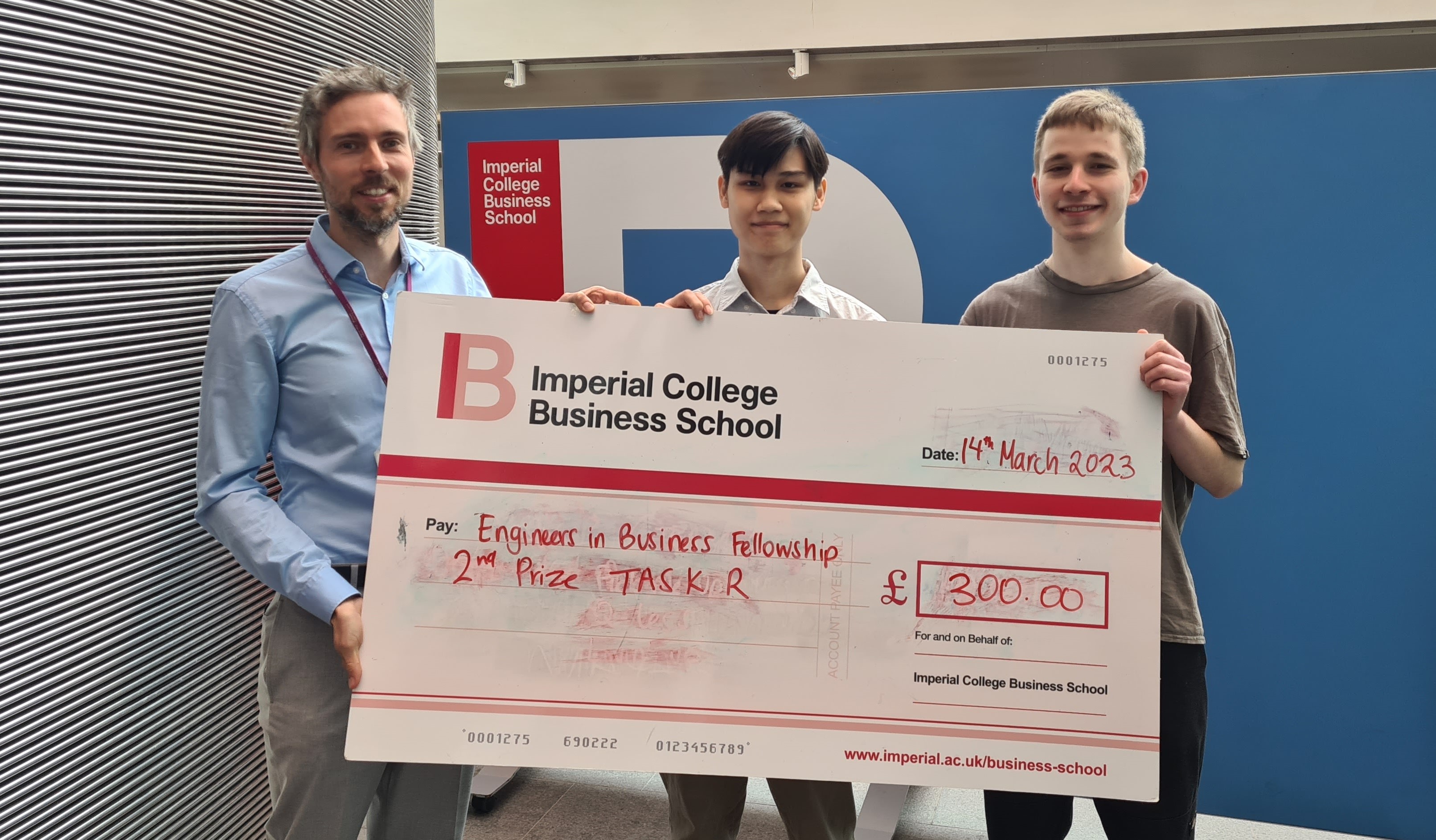
Second Prize Winner: TaskR
The TaskR Team was awarded a £300 Engineers in Business Prize. Left to right: Tim Wiess (Module Leader) with two members of the TaskR team, Shu Kawamura, Chemical Engineering and Kobi Kelemen, Mechanical Engineering. Other team members not shown are Abdur Sharif, Computing (Management and Finance) and Nannapat Sopittakamol, Advanced Chemical Engineering with Process Systems Engineering.
The TaskR app idea was created to connect TWO types of clients: small businesses that need to hire trained employees such as restaurants looking for wait/bar staff or construction sites looking for labourers. The second is young people that are trained/have developed skill sets that are looking for occasional contract work to fit around their schedule. This would tackle the problem that students have of finding flexible short-term work that fits into their schedules, along with issues that employers have finding immediate yet temporary quality workers.
The TaskR app would contain features such as displaying specific pay, hours experience and urgency required for a job, ML-based ranking of candidates, locality and experience-based job filtering and employee/employer rating system.
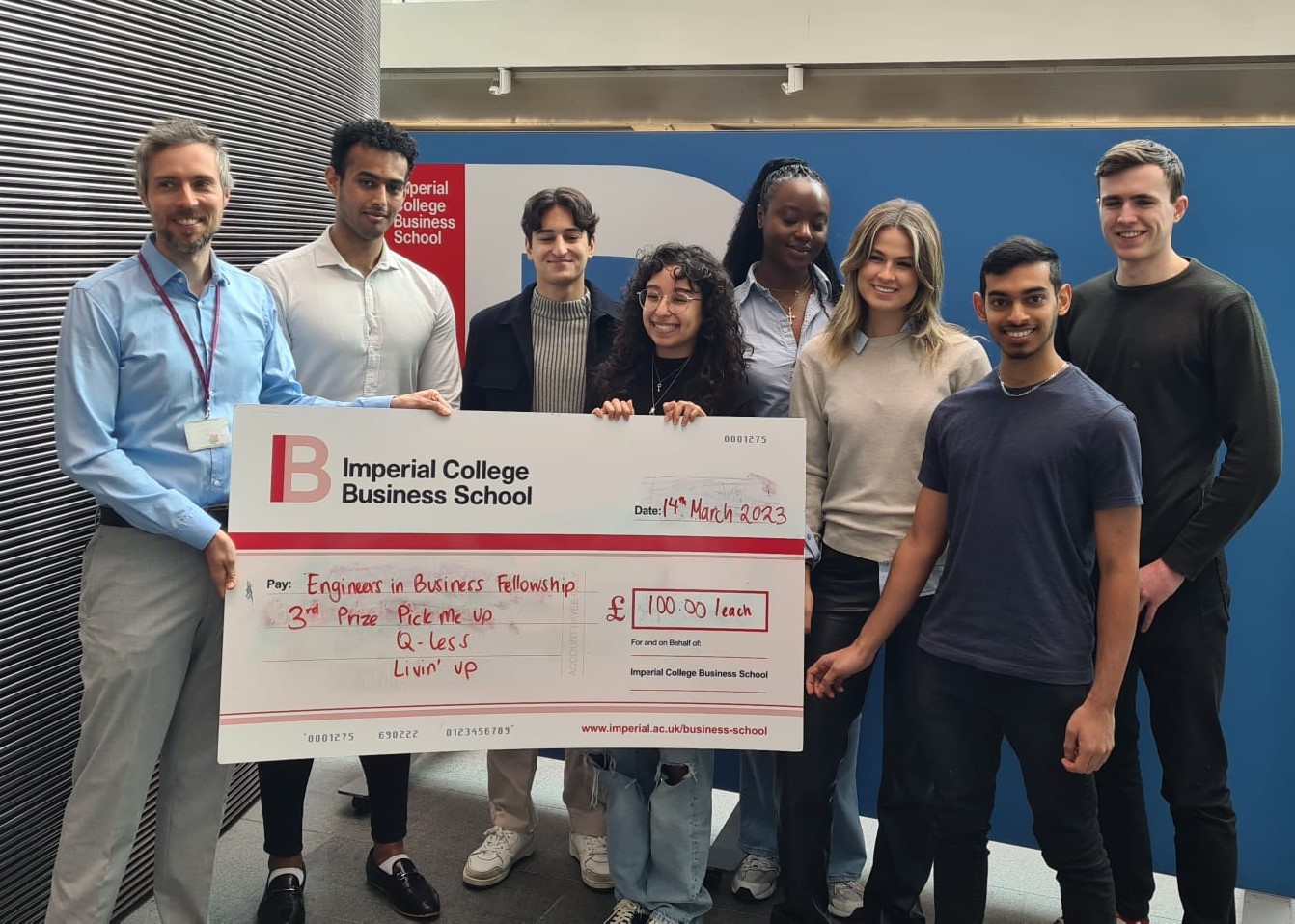
Joint Third Prize Winner: Pick-Me-Up
The Pick-Me-Up Team won a £100 Engineers in Business Prize. The group photo shows a mix of winning teams who took part in the module. The Pick-Me-Up team members are second left, Mohammed Alotaibi, Advanced Chemical Engineering with Process Systems Engineering and second from right, Atulit Dasaratha, Mechanical Engineering. two other PickMe Up Team members not featured in the photograph are Runing Cui, Advanced Chemical Engineering and Shreya Jain, the Module Leader, Tim Wiess is first on the left.
The Pick-me-up business idea consists of a centralised pre-ordering app which is a connection point between university students and campus eateries. The app allows students to place their order and specify a time for selections, resulting in a precise food estimate by eateries. Additionally, the solution provides high-efficiency food lockers with heating/cooling modes, where eateries can store the ordered food allowing students to select it. he lockers can be accessed with the Imperial swipe card.
The proposed idea was initiated due to a common problem that most large universities share. Long café queuing during a one-hour lunch break is identified to be problematic for 68% of the students who eat on campus.

Joint Third Prize Winner: Q-Less
Maite Alonso Martinez, Advanced Chemical Engineering, who represents the Q-Less Team is pictured sixth from the left. Far left is Tim Wiess, the Module Leader. The other members of the Q-less team who are not featured are Aayush Bhatt – Computing, Artificial Intelligence and Machine Learning, Alice Duhem, Biomedical Engineering and Kyros Kontopoulos, Advanced Chemical Engineering (other students in the group phot are winners of other prizes in the Entrepreneurship Module).
Q-less would be an online platform digitalising the food marketing experience. The business idea was to reduce the lunch-rush hour issue faced by both students and Imperial Farmer Market stall owners, as well as the cost of consumption. The app would allow students to join a queue remotely and head to the stall only when need to. A QR code would be placed at the stall and around the farmers’ market. The app would display up-to-date menus and food allergens, as well as prices and directions from where the student is. The app would also apply off-peak discounts throughout the day.

Joint Third Prize Winner: Livin’ Up
The Livin’ Up Team won a £100 Engineers in Business prize. The group photo features members of the Livin’ Up team: third, fourth and fifth from the left are Narayan Achar, Mechanical Engineering, Lamar Balubaid, Advanced Chemical Engineering, Chelsea Awara, Advanced Chemical Engineering and first on the right is Max Charlwood, Mechanical Engineering. The Livin’ Up team is pictured with Module Leader Tim Wiess (first on the left) and two students from other winning teams on the module.
The idea is to bring generations together whilst solving one of society’s most prominent pain points and providing services to the younger community. Livin’ Up devised an app to connect young volunteers with elderly adults seeking company. The app will allow users to connect based on shared interests and volunteers will get the chance to be coupled with somebody that has retired from a field they are interested in or plays an instrument they want to learn. This app would give volunteers access to vast knowledge for free.
Positive feedback
The EBIF prize is a great opportunity for students to develop their ideas further and, in the process, enhance their skills that I am sure will be of great value for their future career trajectory. It also elicits a more competitive nature from students, prompting them to consider their ideas more wholistically and with greater detail, as their ideas are no longer just for university marks.
Tim Wiess
BUSI60041 Entrepreneurship Module Leader
Imperial College Business School
